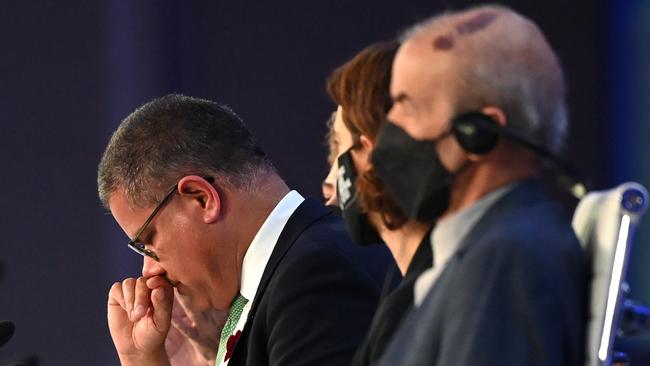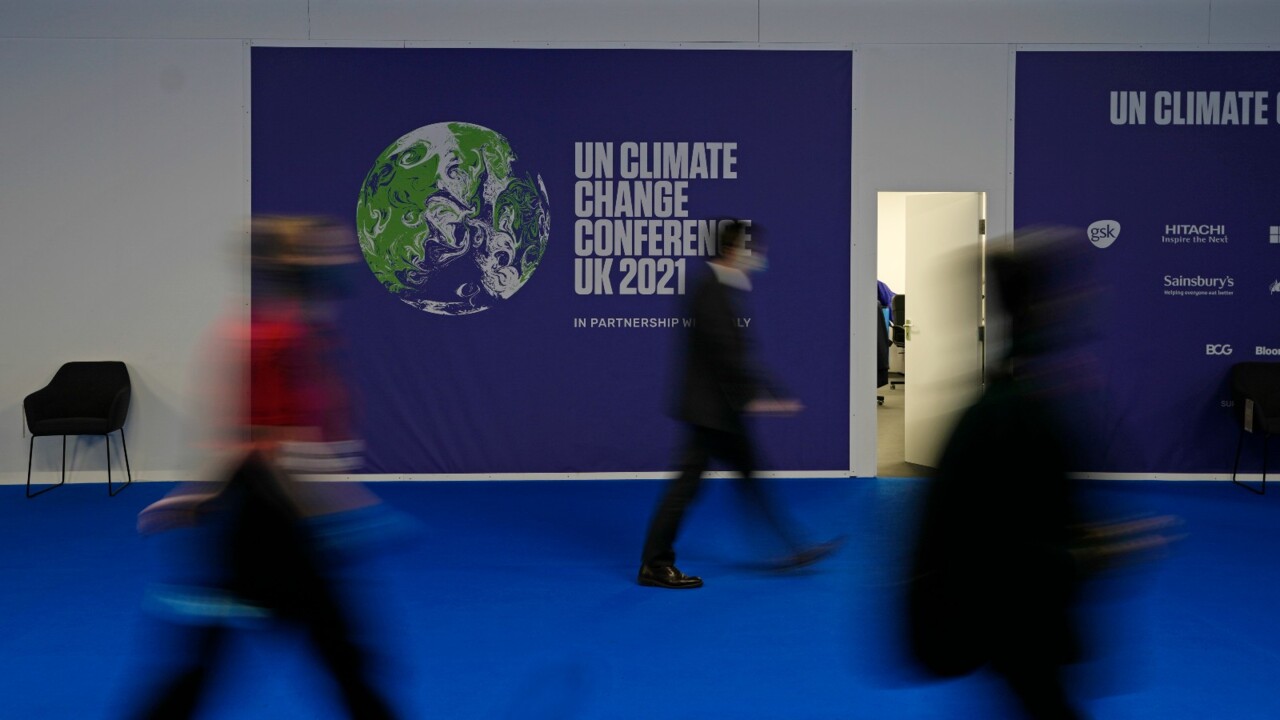Countries strike COP26 deal with coal compromise
World delegates have agreed on a new climate action deal despite dramatic last-minute negotiations over coal.

After two long weeks of talks, red lines, green lines ands landing zones, the delivery of the Glasgow Climate Pact has kept the 1.5C global warming goal alive, but with a weak pulse, officials say.
The results from the summit were the introduction of a phasing-down of coal, the need for countries to return next year with upgraded plans to cut emissions, as well as doubling of developed nation contributions to developing countries fighting climate change.
But the COP26 president Alok Sharma was on the verge of tears, heavily hesitant to bang the gavel and declare the Pact accepted after a dramatic series of interventions by China and India. He was deeply embarrassed at the way the summit ended, ramming home the final text, lest it all dissolve into nothing.
“I apologise for the way this process has unfolded. I am deeply sorry,’’ he told stunned delegates during a dramatic finale, where the text around coal was changed.
Mr Sharma, usually known as “no-drama Sharma’’ for his calm demeanour added: “I also understand the deep disappointment but I also think, as you have noted, that it is vital that we protect this package.”

In the final discussions Indian Environment and Climate Minister Bhupender Yadav and China’s delegate Xie Zhenhua had objected to phasing out of coal, something raised by South Africa earlier, and even though there weren’t supposed to be any last minute changes, India took the main running, demanding the change or detonating the entire agreement.
There was anger, frustration, finger-pointing and much texting on phones as the agenda was delayed and key negotiators came up with words that watered down the coal clause for the third time.
The text that was adopted now reads to “phase-down unabated coal power and phase out inefficient fossil fuels subsidies while providing targeted support to the poorest and most vulnerable in line with national circumstances and recognising the support towards a just transition”.
Mexico was furious about the “non-transparent and non-inclusive process”. Fiji expressed “astonishment and immense disappointment’’ saying countries could exploit loopholes and the phase-down had no demonstrable measurements.
But as the US climate envoy John Kerry later pointed out, the wording on coal can be adjusted at the next COP and coal has to be phased down before it can be phased out, so it was, he believed, a big diplomatic win to get any reference to coal and fossil fuels into the text in any form.
Essentially the Glasgow Pact ensures that countries will return in 12 months time with upgraded national plans to try and bridge the gap and make more ambitious efforts.
Even if every government carries out its current promises, the global temperature rise is still on track for 2.4C, well above the 1.5C target and scientists warn such a rise will cause dramatic devastation across the globe.
The Pact also allows for poor nations hit by extreme weather events to be compensated, but plans to offer reparations to countries for the damage caused by richer nations was put on the back burner.
An agreement was reached on the fundamental process of carbon markets, which will make the Paris Agreement fully operational. There was also agreement about the format to account for targets and emissions, something that Australia had strongly lobbied for.
Australia’s chief negotiator Jamie Isbister had earlier told a stocktaking plenary of the summit: “we heard the need for a greater focus on adaptation and the doubling on adaptation going forward, we also heard the call for loss and damage and acknowledging the need we deliver a tangible focus and how we support regional efforts to address this.”
Mr Sharma said: “We can now say with credibility that we have kept 1.5 degrees alive. But, its pulse is weak and it will only survive if we keep our promises and translate commitments into rapid action.”
UN secretary-general António Guterres warned the world: “We are still knocking on the door of climate catastrophe. Our fragile planet is hanging by a thread.”





To join the conversation, please log in. Don't have an account? Register
Join the conversation, you are commenting as Logout